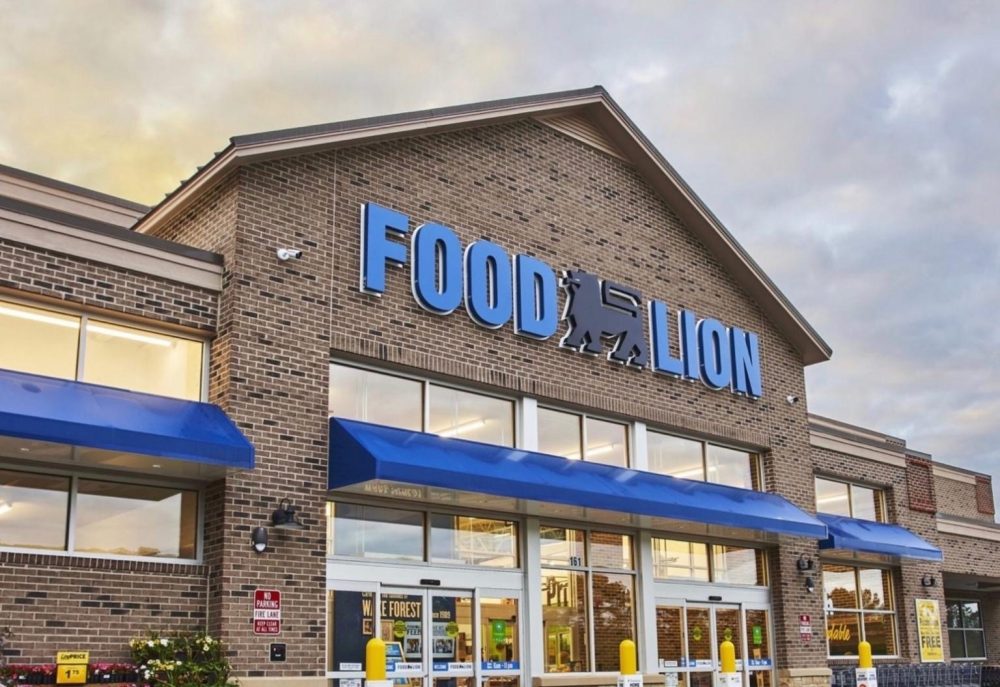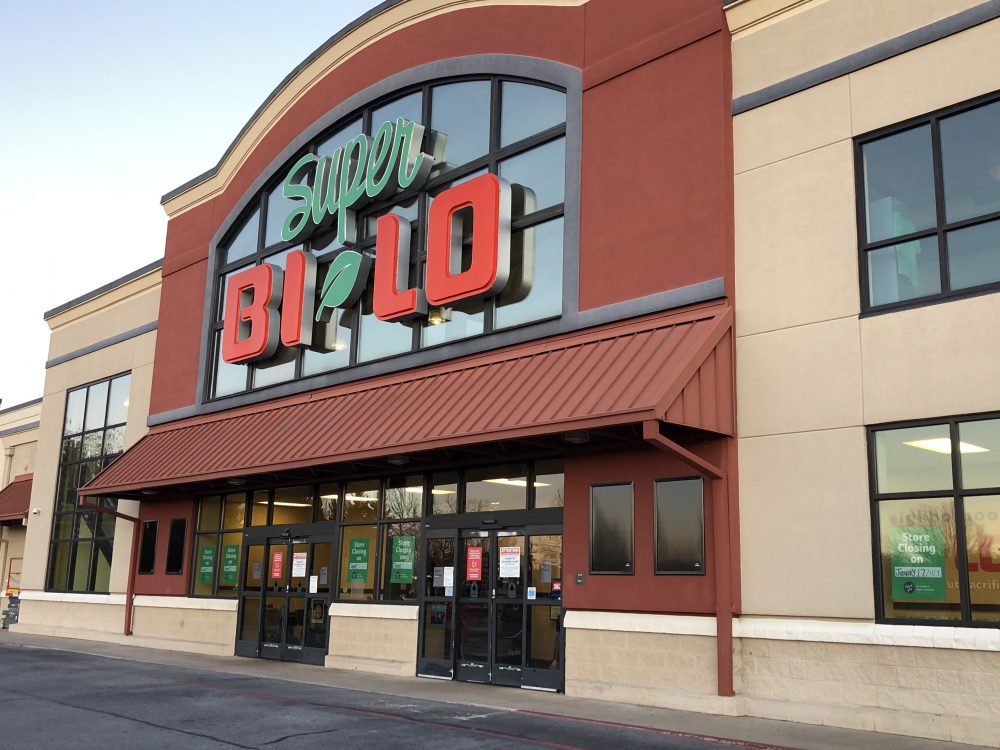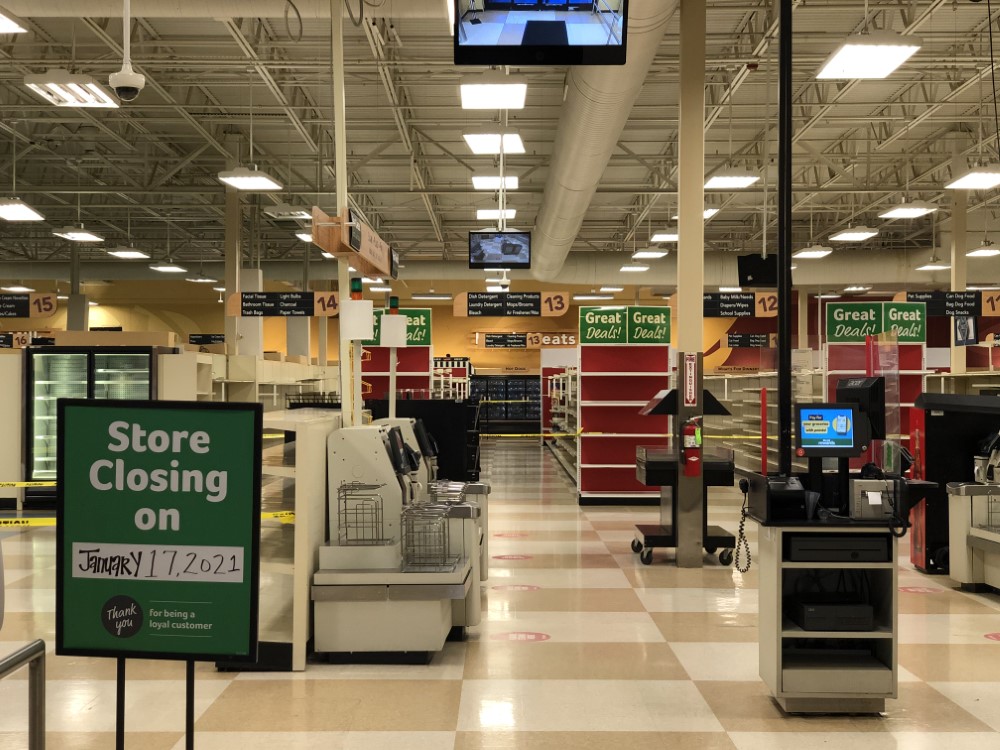Fountain Inn, Simpsonville/Fairview Rd. & Woodruff Rd BI-LOs have been sold
How complicated the grocery business has become especially with the added stress of a COVID-19 pandemic that just will not end! Grocery stores have faced increased demands for certain products, growing requests for timely delivery options, safety concerns for their employees and for their consumers, and increasing costs to implement protective measures. Add to this mix, the slew of competitors offering low prices coupled with prompt delivery, and one has the perfect storm. Grocery chains are eyeing changes in customer service options, store locations, supply chains, and personnel to accommodate and to survive these challenging times. Amidst movements to consolidate and divest, the BI-LO banner has become the latest casualty.
On June 3, 2020, Food Lion announced that it would purchase 62 grocery stores from Southeastern Grocers, the current parent company for BI-LO. These facilities include 46 BI-LO and 16 Harveys Supermarkets located in South Carolina, North Carolina, and Georgia. Food Lion, a division of Ahold Delhaize USA or ADUSA, plans to rebrand the stores and to operate them as Food Lion facilities. The deal includes BI-LO’s primary distribution center in Mauldin, South Carolina which will be converted to supply current and newly acquired Food Lion Stores sometime in the first six months of 2021. It will require 800 people to man that facility once the transition occurs. Food Lion anticipates more than 4650 total associate positions opening from this purchase and has been actively recruiting in towns where the facilities are located. They estimate requiring around 75 associates per store.
Photos by Shirley Adams
In the Simpsonville-Mauldin-Fountain Inn area, three BI-LO stores were purchased by Food Lion including the Fountain Inn store and two grocery stores in Simpsonville—the one on Fairview and the other on Woodruff. The Mauldin store on West Butler and the Simpsonville location on Highway 14 were not included in this purchase.
The newly acquired stores will continue operating under the BI-LO name until they are converted sometime between January and April 2021.
Food Lion’s goal is to open each store as quickly as possible to minimize disruptions in customer service.
BI-LO employees who currently work at the purchased facilities will not be automatically transferred to Food Lion. If interested, they must apply for these associate positions and go through a hiring process. The good news is that these jobs are not going away but they are changing brand names. On the other hand, the associated in-store pharmacies have been closed and prescriptions transferred to CVS, Walgreens, or another pharmacy the customer has chosen. Southeastern Grocers has been collaborating and working with CVS and Walgreens to help these pharmacists find a new place of employment.
For the present, the BI-LO stores that were not sold to Food Lion will continue operating as BI-LO facilities. Southeastern Grocers says that it will be exploring strategic options which might include additional transactions for these remaining 61 BI-LO stores.
It has been a long and difficult road for the BI-LO banner. In 1961, Frank Outlaw, a former Winn-Dixie executive, founded BI-LO by purchasing four Wrenn and Syracuse grocery stores in Greenville, South Carolina and renaming them “Wrenn & Outlaw.” The BI-LO name came in 1963 when Outlaw, wanting to establish a “brand,” held a store-naming contest for his employees. His secretary, Edna Plumbee, suggested “BI-LO,” and that name has stuck for 58 years.
BI-LO has had its ups and downs since its founding. Purchased in 1977 by Ahold, a Dutch company, it remained in their ownership for almost 30 years. During that time, the company sponsored the construction of Greenville’s BI-LO center, now called Bon Secours Wellness Arena, and developed the concept of a larger store layout, featuring a selection of healthy and organic foods as well as specialty items and appealing to high-end customers. Around 2005, their private label was changed from “BI-LO” to “Southern Home.”
In 2005, BI-LO was also sold to Lone Star Funds. That parent company tried to resell the grocery chain but instead declared bankruptcy in 2009. By 2010, the company emerged from bankruptcy and hoped to sell BI-LO to another grocery chain, but that never materialized. The holding company name was changed from Lone Star Funds to Southeastern Grocers in 2013. With another bankruptcy event in 2018 and the closing of 100 or so stores, Southeastern Grocers had rung up quite a bit of debt and formulated long-range plans to strengthen the company.
Southeastern Grocers, now based in Jacksonville, Florida, includes as its holdings the following chains: BI-LO, Fresco y Mas, Harveys Supermarket, and Winn-Dixie Grocery Stores. It serves communities throughout seven southeastern states—Alabama, Florida, Georgia, Louisiana, Mississippi, and North Carolina. For their long-range goals, the company decided to sell off its BI-LO chain, and concentrate on building up its other three store names. Fresco y Mas, founded in 2016, fills the specialized niche of Hispanic communities in Florida while Harveys Supermarket does well in small communities. In addition, Winn-Dixie with its 500 stores in Florida, Georgia, Alabama, Louisiana, and Mississippi comprises the largest grocery chain in the group. By selling off the 62 stores in this deal, Southeastern Grocers has consolidated its footprint to Florida and adjacent areas in nearby states. It has been able to open four new Winn-Dixie stores in Florida and expand its Fresco y Mas stores to Southwestern Florida.
This purchase by Food Lion holds much promise for our community.
Food Lion, based in Salisbury, North Carolina, since 1967, is part of the company Ahold Delhaize USA, the U.S. division of Zaandam-based Ahold Delhaize. Food Lion operates more than 1000 stores in 10 Southeastern and Mid-Atlantic states. The company employs some 77,000 associates.
Southeastern’s decision to sell off selected BI-LO facilities provided a great opportunity for Food Lion to expand its footprint. Because of its size, Food Lion can buy items in larger quantities and sell them for lower prices. The company has been pursuing more stores to make shopping convenient and accessible. They have the resources and stability to thrive in this grocery market. In addition to their claim of lower prices, Food Lion offers the MVP loyalty program and a mobile app to enhance shopping experiences as well as many weekly and coupon offers.
Food Lion also invests in the community. They have a program to ensure that unsold food that is safe to eat gets distributed to those in need. In addition, they have committed to donate a billion more meals to the needy by 2025 through “Food Lion Feeds.”
Mr. Outlaw would not recognize his BI-LO now. When all the deals have been made in the upcoming years, the BI-LO name will most likely disappear, and South Carolina will be out of Southeastern Grocer’s range. There is one strange irony though. The purchased stores in this recent arrangement fall back under the control of Ahold, a division of which owned them for almost 30 years. So, everything that is old has become new again, and things have come full circle. We wish Food Lion every success with their grand opening of three stores in the Simpsonville-Mauldin-Fountain Inn area and look forward to their becoming part of this community.■





